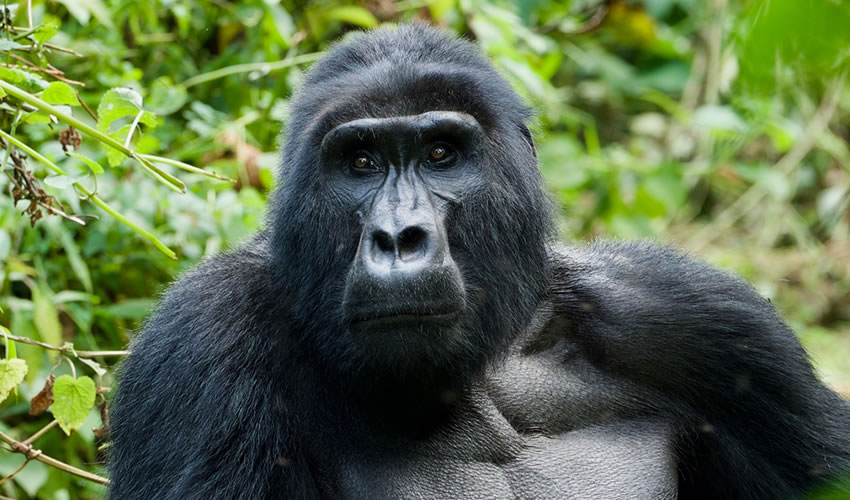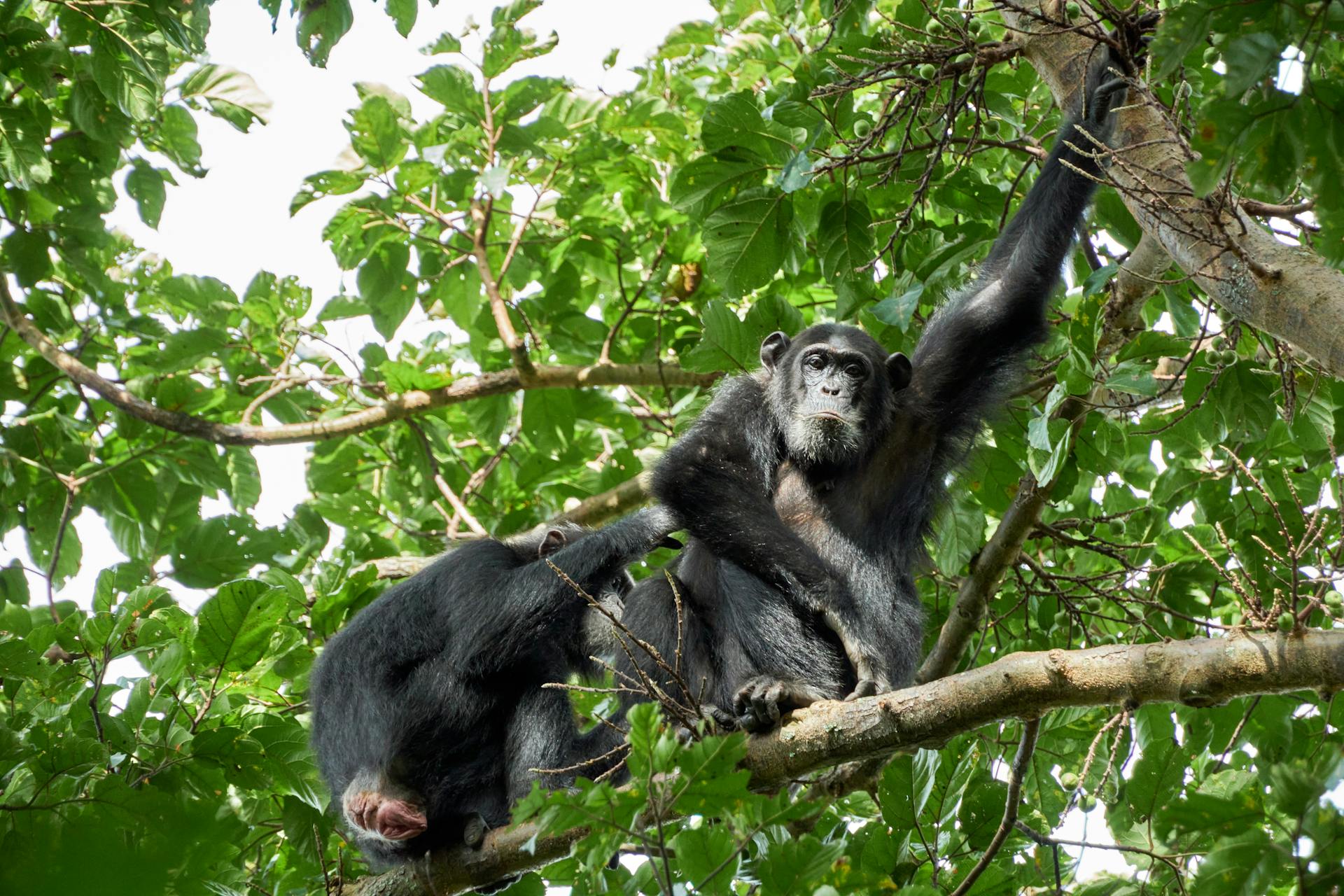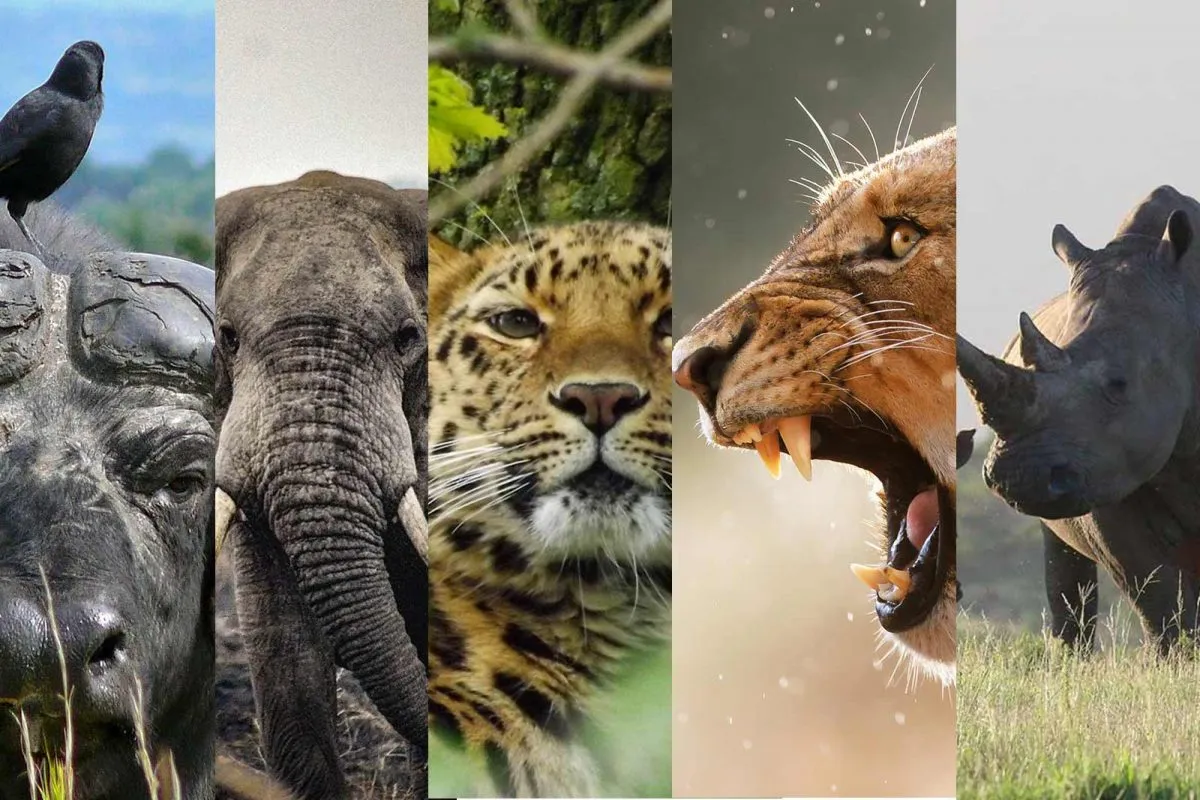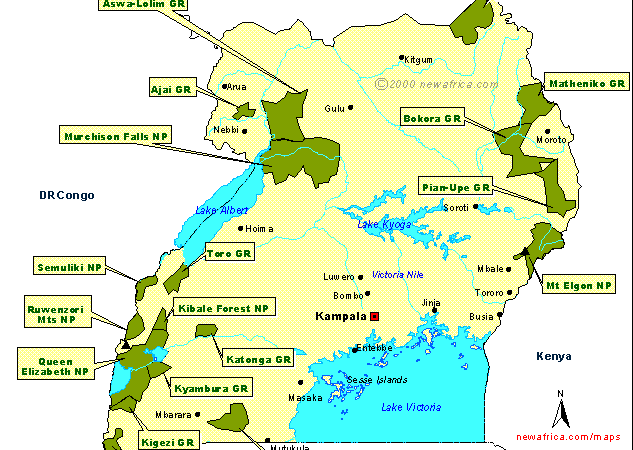Contact Us
Explore with Peter Mugogo
Tel. on site: +256 701 684607
Naalya — Namugongo Road
Kampala
Herman (Austria)
Tel.: +43 (0) 6647 518 0066
Ivy (German)
Tel.: +49 (0) 1638 668 704
[email protected]
FOLLOW US ON...
Connect to FacebookExciting Uganda Information
Explore the rich experiences Uganda has to offer, from luxury lodges to breathtaking national parks and thrilling gorilla tracking adventures.
Frequently Asked Questions (FAQs) About Uganda
Uganda is ready and good to visit at any time of the year. Even during the rainy seasons (March - June and October - November) it can rain but not for more than three hours and the sun shines again. It rarely gets unbearably cold, but it is advisable to carry light rain gear always, and a must in the rainy season. It can slightly get cold at night (especially in highland areas such as Sipi/Mount Elgon, the Rwenzori’s, Kisoro/Kabale, Bundibugyo, parts of Kabarol/Fortportal and Bwindi Impenetrable). It can also get warm (up to 37 degrees Celsius) during the dry season in some parts, north of the country such as Murchison falls and Kidepo valley National park are.
From Europe, major carriers are: Brussels Airlines, The Royal Dutch airlines (KLM) and Turkish Airlines, all of which fly directly to Entebbe. International carriers from Europe connect with most North American carriers. Major African Airlines include: Uganda Airlines, Egypt Air, Ethiopian Airlines, Kenya Airways, Air Tanzania, South African Airways and RwandAir. We also have Emirates Air, Etihad and Qatar Airways from the Middle East and South East Asia.
Yes, charter flights and commercial scheduled flights are available to almost all safari destinations. Charter and scheduled flights costs are slightly high and a limited number of internal flights are available due to the scheduled nature of the route’s flight plans. Booking in advance is very essential. All flights take off either from Kajjansi airstrip or Entebbe International airport. Aerolink is one of the providers and has scheduled flights to; The West and South (Kasese, Kihihi, Mweya, Kisoro and Semuliki) while in the North it covers (Kidepo Valley National park and Murchison falls National: Pakuba, Bugungu and Chobe).
You are required to purchase a tourist visa before you enter Uganda. Tourist visas can be bought in advance via the embassy or consulate in your country or simply purchased upon arrival at Entebbe International Airport or at any overland border. Photos are not required and a single-entry tourist visa costs US$ 50 per person for up to 90 days stay in Uganda. If you are planning to combine Uganda with a visit to Rwanda or Kenya, it is recommendable to request for the East African Tourist Visa instead of a Uganda Single entry visa. This special East Africa visa costs US$100 per person and allows 90-days multiple entries to Uganda, Rwanda and Kenya.
We recommend that you you always carry all your small personal valuable such as passport, ID, Cash and financial cards. But if you must, then leave original travel documents and passports in your room safe at the hotel (if you wish) but be advised to travel with passport photocopies. East African residents will need to show copy of Passports and Work Permits to obtain resident discounts. Most hotels and lodges have secured safe deposit boxes available in the rooms so it is an alternative to keep your valuables.
Once you have confirmed the final itinerary with us, you will be asked to pay a deposit of 30% through our Banking details or online payment like which is shared on demand. Note that availability of accommodation and activity permits are not guaranteed until officially confirmed. Accommodation and activity reservations will be made as soon as booking confirmation payment deposit has been received on our bank accounts. For your convenience, the balance payment of 70% should be settled before the start of your trip. We accept payment by all debit and credit cards.
You can book in advance as far as 2 years. As Explore with Peter Mugogo, we recommend that you book your gorillas and chimpanzee permits between 6 -3 months in advance. Gorilla and Chimpanzee Trekking safaris require full payment for a permit. A Gorilla Trekking permit costs US$800 and a Kibale Forest National Park Chimpanzee Trekking permit costs US$300 for Foreign Non Residents, US$700 for Gorillas for Foreign residents, and US$250 for Kibale Chimpanzee permits for Foreign residents.
We recommend: a breathable and lightweight rain jacket or poncho, a warm jacket or fleece for overcast days and evening, long-sleeved shirt and trousers, sturdy waterproof walking boots (seasoned or well-worn footwear), leather gardening type gloves, sunscreen, cap or sun hat, sunglasses, insect repellent, comfortable backpack for carrying your packed lunch, water and minimum amount of personal items. Cameras and video cameras are allowed, but bring adequate storage device as memory cards and batteries as they are not easily found in the shops outside the big cities or towns. Note: Avoid very bright coloured clothes e.g., red, maroon and blue. Instead you should pack and plan to wear nature blending colors.
We provide open roofed 4WD safari vehicles for all our tours. Our comfortable 4x4 minibus cars or Landcruiser/Safari Jeep offer seats for 2 to 7 people. To ensure that everybody has a window seat to enjoy the best views of Uganda, we usually limit the number of people to seven in these 4WD safari minibuses. Limiting the number of people per vehicle also means plenty of legroom and luggage storage. The challenging condition of the roads means that trip vehicles are serviced by company mechanics after every trip.
Single travellers are very welcome! However, to minimize your costs we would suggest forming or joining a group. Although we can try to arrange this for you, we cannot guarantee we can find a group whose interests, budget and preferred route correspond to yours, especially during low season.
We offer tailor-made trips for any number of Travellers. There is no minimum number for a group tour, although the bigger the group, the more friendly the price will be.
Trip prices are inclusive of: • Ground transport in a comfortable four-wheel drive (4WD) safari vehicle • A visit to all places detailed in the programme • The service of an experienced English-speaking driver/Safari guide or one who speaks a language of your choice. • Site and park entrance fees, gorilla trekking permits and chimpanzee trekking permits • Activities as detailed in the itinerary (except for those that are marked optional) • Meals as specified in the itinerary • 2 litres of bottled mineral water per person per day while travelling in the car • Government taxes.
Trip prices do not include: • International flights • Tourist visa (issued upon arrival at the airport) • Meals and snacks that are not mentioned in the itinerary • Beverages (other than the bottled mineral water provided in the trip vehicle) • Tips and gratuities for trip guides and/or site guides • Laundry • Optional activities that are mentioned in the program • Items of a personal nature (toiletries, camera batteries, souvenirs) • Travel insurance.
Tipping depends on the level of service rendered and satisfaction derived from it. There are no fixed or assumed rates. Culturally people may not feel that it is appropriate to outwardly show their appreciation for money given, however remunerations are generally low in Uganda compared to other tourism destinations and all tips will be greatly appreciated. Generally tipping will depend on the level of satisfaction you derive from the service offered or how generous you would like to be. Tips are very personal and this is only a guide. Feel free to ask for advice from the safari guide. In our experience, we have found that 20 USD is respectful enough and pleasant for a day’s work. Otherwise, 5-10 USD is good enough for an individual porter, waiter or service man. Tip boxes are also provided at hotels for all hotel staff including some who do a great Job but you probably would never meet them, for example kitchen staff, cleaners and security personnel among others.
Yes, all Explore Safaris drivers/guides speak English. If you require drivers or guides who speak other international languages (German, Spanish, French, Italian, Arabic, Chinese) please let us know in advance to help us get you the best available options.
Uganda is a safe country to visit. Although Uganda has gone through a turbulent history, the country is safe, stable and welcoming. Ugandans’ hospitable nature is legendary! You will be warmly welcomed wherever you go by the country’s friendly residents. The most popular National Parks are situated in the south (west) of Uganda and are safe to visit. The border area with Rwanda and DRC remains stable and all National Parks and wildlife reserves are well protected by the Uganda Wildlife Authority’s rangers. Tourism is hugely important for Uganda’s economy and a Tourism Police force has been created to protect visitors. If you are unsure about the safety of travel to Uganda, please contact us. Your travel insurance company or foreign office may offer information about travel to Uganda. However, in our experience, these bodies all are on the side of caution and do not necessarily know what is happening on the ground in Uganda at the time. For example, some still advise against travel to Kidepo Valley National Park in Northern Uganda, although it is now safe to travel there by road, or by air. Your safety is our absolute priority and you can rest assured that we will always give you the best Uganda travel advice.
Kampala which has also been dubbed; “The City that Never Sleeps” is one of the safest capital cities in Africa – although, as anywhere, petty thieves may try and take advantage of people who leave phones and valuables unattended. Your driver guide will give you all the information you need to make sure your trip is safe and incident-free. Feel free to ask questions!
Time spent in the car depends on the destination area but can be up to 6 hours in a vehicle for long journeys. During this journey, several stops will be made, including photographic moments, lunch breaks, bathroom breaks (also known as; picking flowers or cutting Banana fibers in our local languages) and any other necessary stops for refreshments and other facilities. Most itineraries will not require any more than six hours in a vehicle in a day. Again, various stops are made to ensure your comfort and convenience.
There is just so much to see on a Uganda Safari; the large mammals, Birds, butterflies, reptiles, scenic views and diverse human activities. Generally speaking, a safari including two or more parks, will include Elephant, Buffalo, Hippo, Lion, Crocodiles, Uganda Kob, Bush buck, Water buck, Reed buck, Warthogs, Hyena, to name a few. Leopard sightings are elusive, but high populations of leopards do live in most parks in the country. Rhinos can be seen at Ziwa Rhino and Wildlife ranch in Nakasongola, near Masindi, and Impala, Zebra - and occasionally Eland - may be seen in Lake Mburo and Kidepo Valley National Park. Giraffes are in Murchison Falls NP, Mburo and Kidepo valley NP. Cheetah and ostriches can be seen in Kidepo and Pian Upe game reserve in northern Uganda, a beautiful virgin part of the country. Uganda is one of the best places in the world to view Chimpanzees with trekking available in Kibale Forest, Budongo Forest, Kyambura Kalinzu and many other forested areas in Uganda. Gorilla tracking safaris are at Mgahinga and Bwindi impenetrable forest National Park in the far southwest part of the country, with access available in Rwanda and Democratic Republic of Congo (former Zaire). Fourteen other species of primates can be seen in Uganda. Uganda's strategic position on the Albertine Rift Valley makes it home to an incredible variety of flora and fauna. More than 1,060 species of birds can be viewed, including many migrating birds. Unique species of butterflies are also found here. The Lake Victoria; the worlds’ 2nd largest fresh water basin, Lake Bunyonyi the deepest Lava dammed lake in the world and many beautiful water bodies are found in Uganda. The varied climatic zones of the Uganda intersecting each other with clear disparity make a Uganda tour very amazing and full of adventure.
“Uganda Trip accommodation” falls into three categories: budget, mid-range or luxury/High End. Budget accommodation may be simple and basic rooms, bandas or tents, with double/twin beds and mosquito nets when necessary. Private bathrooms are not always available and you may have to share bathroom facilities. 3-star, 4-star and 5-star accommodation offer comfortable rooms or luxury furnished trip tents with a private bathroom. Flush toilets and hot and cold running water are available. Mosquito nets will be provided where necessary. All our hotel partners are carefully selected and frequently visited by our staff, to monitor quality and service levels.
A number of different vaccinations are recommended and/or required before entering Uganda. A certificate proving you have had the Yellow Fever vaccination is mandatory for entry into Uganda. Immunizations against DTP (Diphtheria, Tetanus and Polio) and Hepatitis A are recommended as well. Besides bringing mosquito repellent, we also advise you to take malaria ‘prophylactics’ (prevention medication).
You are unlikely to fall sick while you are in Uganda but do take all recommended preventive measures. If you take any regular medication, please bring it with you. Take your Malaria medication as directed – before, during and possibly after – your visit to Uganda (depending on the Malaria prophylactic you take). Although HIV/AIDS infection rates are lower than many countries in Africa, the prevalence of HIV/AIDS infection is certainly higher than in most Western countries. Tourists and visitors to Uganda sometimes engage in risky behaviour that they would not engage in back home. Play safe. Please take your sexual health seriously.



